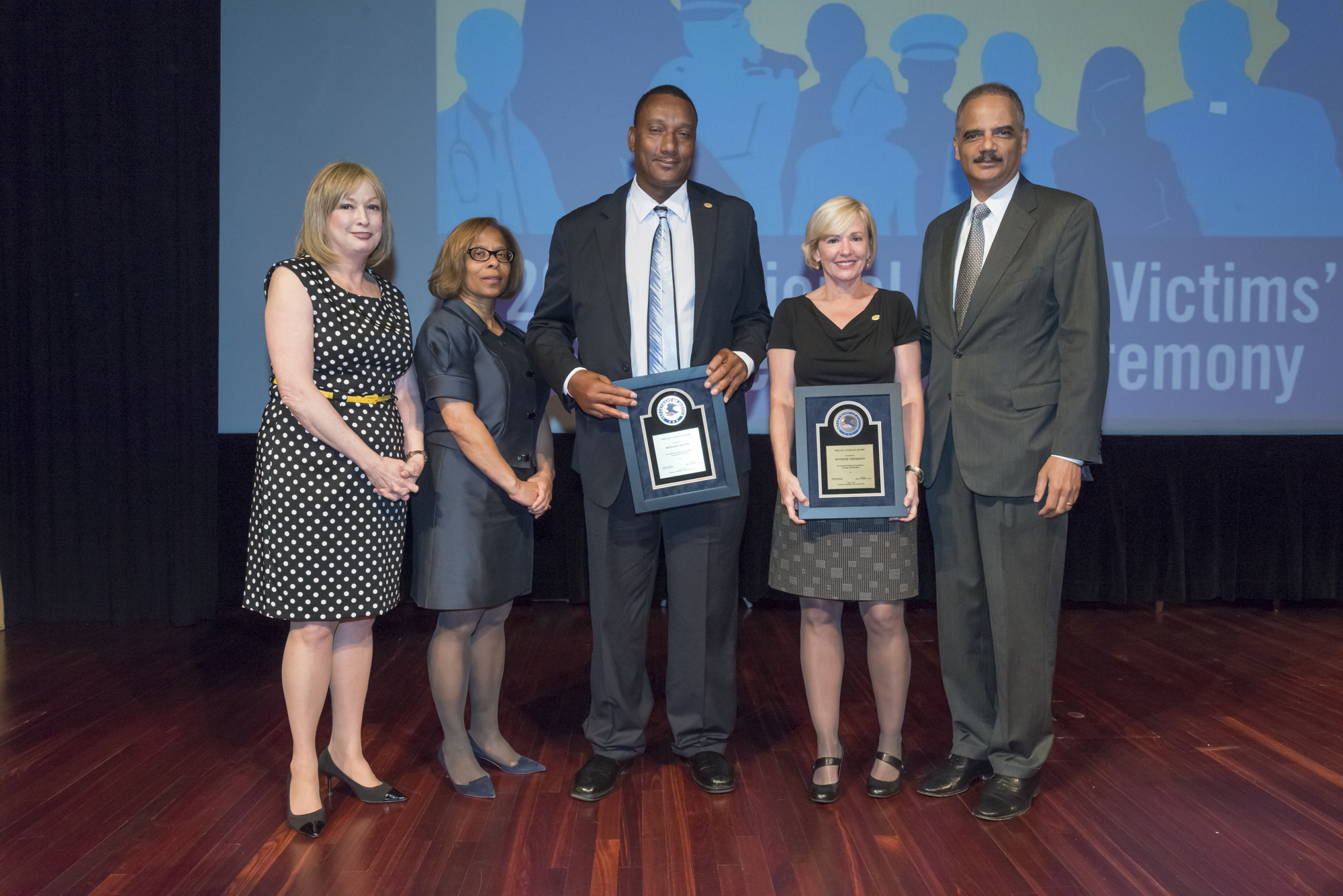Archival Notice
This is an archive page that is no longer being updated. It may contain outdated information and links may no longer function as originally intended.
Jennifer Thompson and Ronald Cotton | Special Courage Award
Chapel Hill, North Carolina
Jennifer Thompson was brutally raped, as a 22 year old college student on July 29, 1984. Her testimony and eyewitness identification sent a young man, Ronald Cotton, to prison for a life term, for a crime he did not commit. While Cotton and Thompson are the same age, their life experiences have been forever impacted by the criminal justice system.
Cotton was persistent in maintaining his innocence. Thompson later learned that she was mistaken when advancements in DNA tests 11 years after identified the rapist as Bobby Poole, a man who was brought to Cotton’s second trial, was a man Thompson testified she had never before seen. DNA exonerated Cotton in 1995.
Upon learning of the mistake, courageously Thompson asked Cotton for his forgiveness. Cotton, graciously and mercifully, forgave her. Since then they have been a team, advocating for a shared common ground of fairness and accuracy in the criminal justice system. They have traversed the country to share the devastating effects of the miscarriage of justice from the perspectives of victims of rape and wrongful conviction.
Without self-pity, they share how wrongful convictions can be reduced by exploring all avenues during a criminal investigation prior to conviction and revealing the problems with traditional photo identification and police lineups. They co-authored the New York Times best-seller entitled, Picking Cotton: Our Memoir of Injustice and Redemption, and have appeared on PBS Frontline, CBS 60 Minutes, and in hundreds of talks before community groups and legislative committees, explaining the victim perspective from both sides.
Thompson’s close friends and family members have felt that she should be silent about her ordeal. Some advocates have felt she should not publicize the potential for error in the criminal justice system. Others have questioned Cotton, believing that nothing other than rage and blame was an adequate reaction to his imprisonment. For years, they have faced strangers, and dealt with their initial incomprehension, scorn, and sometimes, even been attacked with brutal crudeness. Through the adversity they faced, they have had a tremendous impact healing surviving victims and preventing future ones through the healing power of forgiveness. Their courage is an example of sustained heroism.
2015 National Crime Victims' Service Awards Tribute Video
Watch this video to learn more about Jennifer Thompson and Ronald Cotton, 2015 recipients of the Special Courage Award.
2015 National Crime Victim Service Award recipients Ronald Cotton and Jennifer Thompson with (from left) Joye E. Frost, Director, Office for Victims of Crime; Karol V. Mason, Assistant Attorney General, and Attorney General Eric H. Holder, Jr.
The 2015 National Crime Victims' Service Awards recipients with Attorney General Eric H. Holder, Jr., Assistant Attorney General Karol V. Mason, and OVC Director Joye E. Frost.





